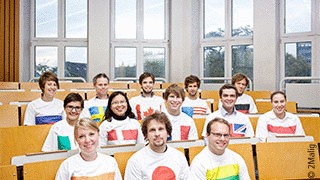
Programme Structure and Organisation
Here you will find detailed information on the structure of the Bachelor's programme and helpful links to the organisation of the Bachelor's programme in Information Systems.
You can also find this tabular overview in the current Module Catalogue for the B.Sc. Information Systems.
Course of studies
The study programme includes important methods and instruments and also the factual knowledge of information systems, e.g. the modelling of processes in the company in order to support them with information systems or to map them completely with information systems.
In addition, it teaches which types of information and application systems can serve which purpose in the company and how to decide on their economic use (digital transformation). This also covers the management of the implementation of such systems and other IT projects. Furthermore, it is taught what must be taken into account in the management and productive use of data and how these can be processed in order to use them within the framework of decision support and optimisation systems.
Finally, the course imparts how successful business models can be developed for electronic commerce (digital innovation).
In the basic and advanced area, the fundamental contents of business administration, mathematics, computer science and information systems are taught and deepened.
In the supplementary area, there is a choice between advanced modules in business administration, computer science or information systems, which can be taken according to interest and career goal.
Finally, the specialisation section of the degree programme focuses on teaching instrumental competencies in the field of computer science and information systems.
The Studium Integrale promotes competencies that go beyond the actual subject-related studies. To this end, the various faculties of the University of Cologne offer, among other things, subject-specific introductory events, competence training (e.g. rhetoric), language courses and lecture series on current topics from which you can choose. With the Bachelor's thesis, you show that you can master a problem scientifically and analytically.
Further details on the structure of the degree programme, as well as study progression recommendations and module descriptions, can be found in the module catalogue.
- Information and regulations relevant to the examination can be found in the examination regulations.
Organising your Studies
Studying requires a high degree of self-organisation. Well-prepared and properly informed, you will manage your studies with ease. In the following, we have compiled links to helpful information, relevant tools and counselling centres for you.


KLIPS (General information and course catalogues)

Certificates

Financing

Stays Abroad

FAQ
